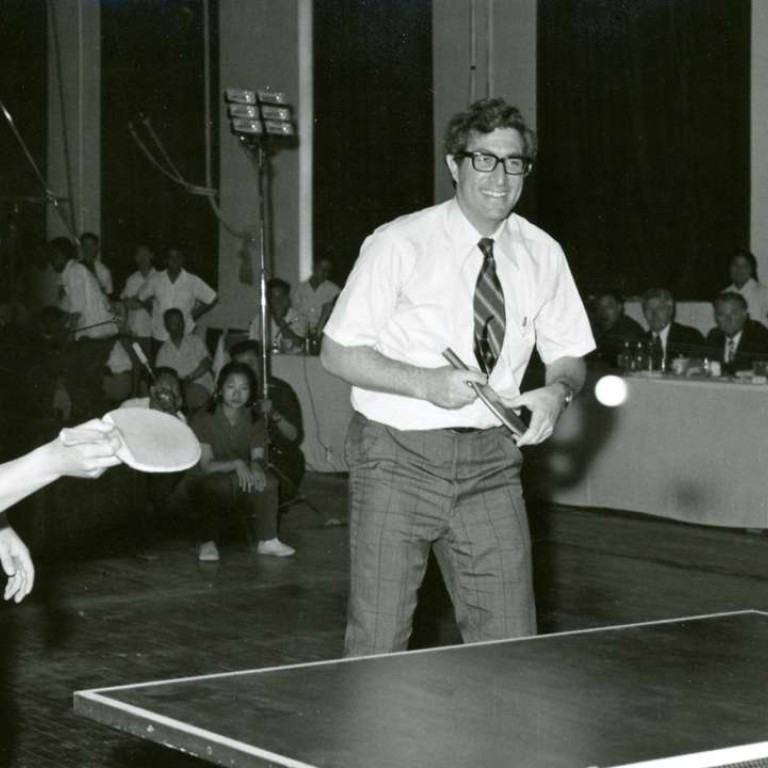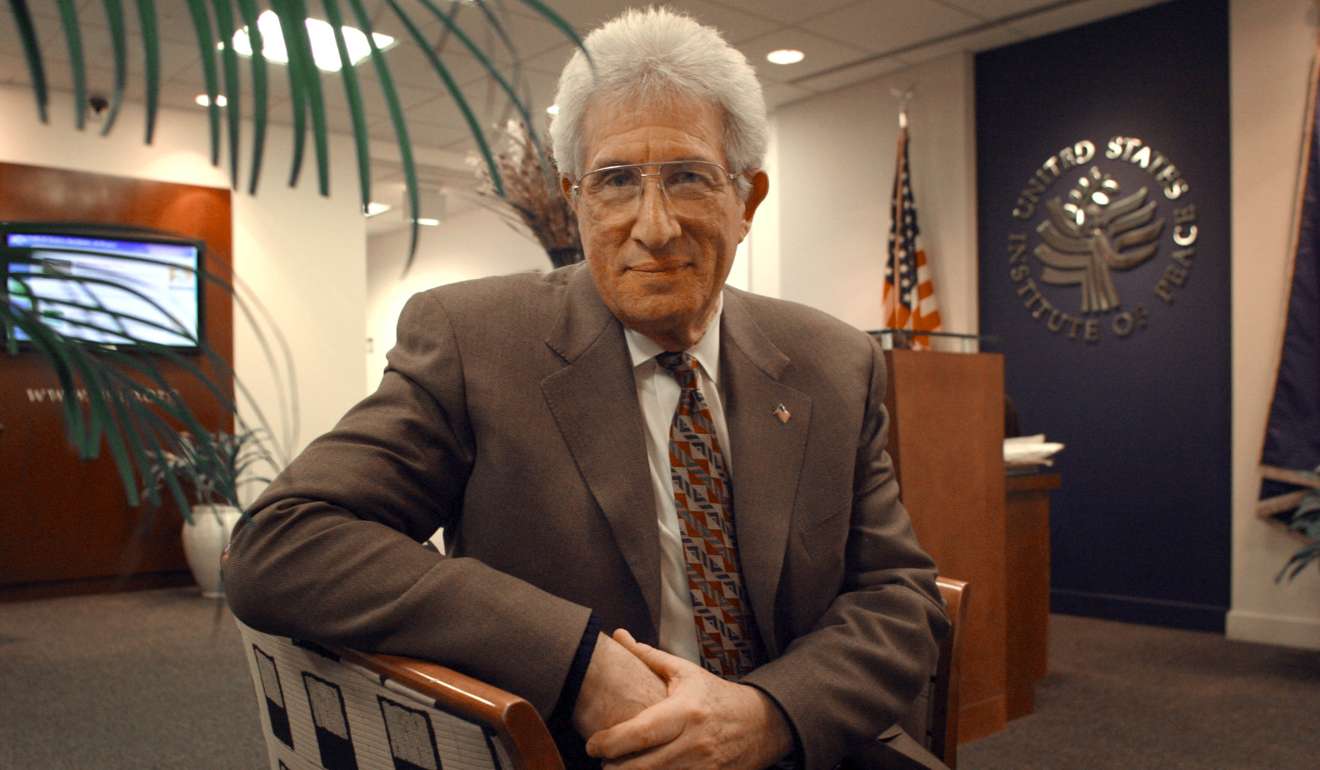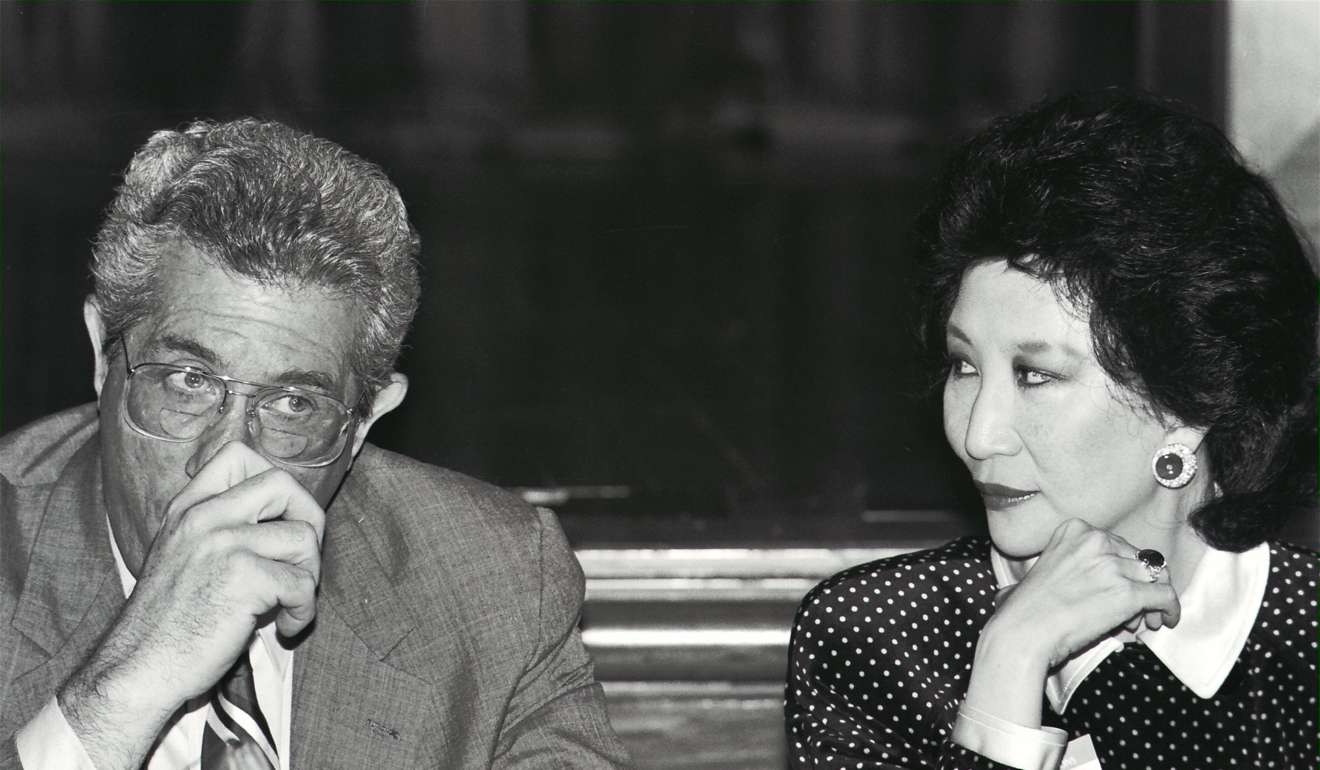
Richard Solomon, whose ‘ping-pong diplomacy’ helped Nixon normalise US relations with China, dies aged 79
Top US diplomat and China scholar Richard Solomon, who played a leading role in the opening of US relations with Beijing under Richard Nixon in the 1970s, has died at the age of 79, the State Department said on Wednesday.

Solomon was a “distinguished diplomat, peacemaker and scholar who devoted his life to building bridges between the United States and East Asia,” State Department spokesman Mark Toner said in a statement.
Later, Solomon went to work at the State Department in the 1980s, becoming assistant secretary of state for East Asian and Pacific affairs in 1989, just as relations with China nosedived after the Tiananmen Square crackdown on pro-democracy protesters.

His State Department portfolio, at various times, included democratisation movements from Manila to Santiago, Chile, and nuclear arms talks with Moscow and Pyongyang, North Korea. Former US secretary of state George Shultz praised Solomon’s skill in strategic long-term planning, particularly on the “evolving relationship” with the collapsing Soviet Union.
But the central focus on his life’s work was China.
In his books - perceptive volumes on Mao Zedong and Chinese political negotiating strategies - he sought to help US policymakers comprehend a land that was an almost hermetically closed society, hostile toward the West and little understood outside its borders.
Solomon had an extraordinary opportunity to help shape China policy when, in the fall of 1971, he was hired by the National Security Council. Virtually no Americans had been on the Chinese mainland since the Communist revolution in 1949. But several diplomatic overtures by the Nixon administration, led by Kissinger, helped set in motion a thaw in US-China relations.
The US table tennis team made a momentous visit to China in April 1971, and Nixon and Kissinger travelled to Beijing the following February. One of Solomon’s responsibilities was to escort the visiting Chinese table tennis team around the United States in April 1972 - a trip seen as an important step in reciprocal trust-building.
Solomon continued to organise cultural and academic exchanges with the Chinese until leaving the council in 1976 to lead the political science department at the Rand Corp think tank.
He also served as ambassador to the Philippines and later became president of the Congressionally funded United States Institute of Peace, which he headed for two decades until 2012.
“His lasting legacy was to mainstream conflict management as an integral part of foreign policy,” said Chester Crocker, a former assistant secretary of state who chaired the institute’s board of directors alongside Solomon.
Additional reporting by the Washington Post

.png?itok=arIb17P0)